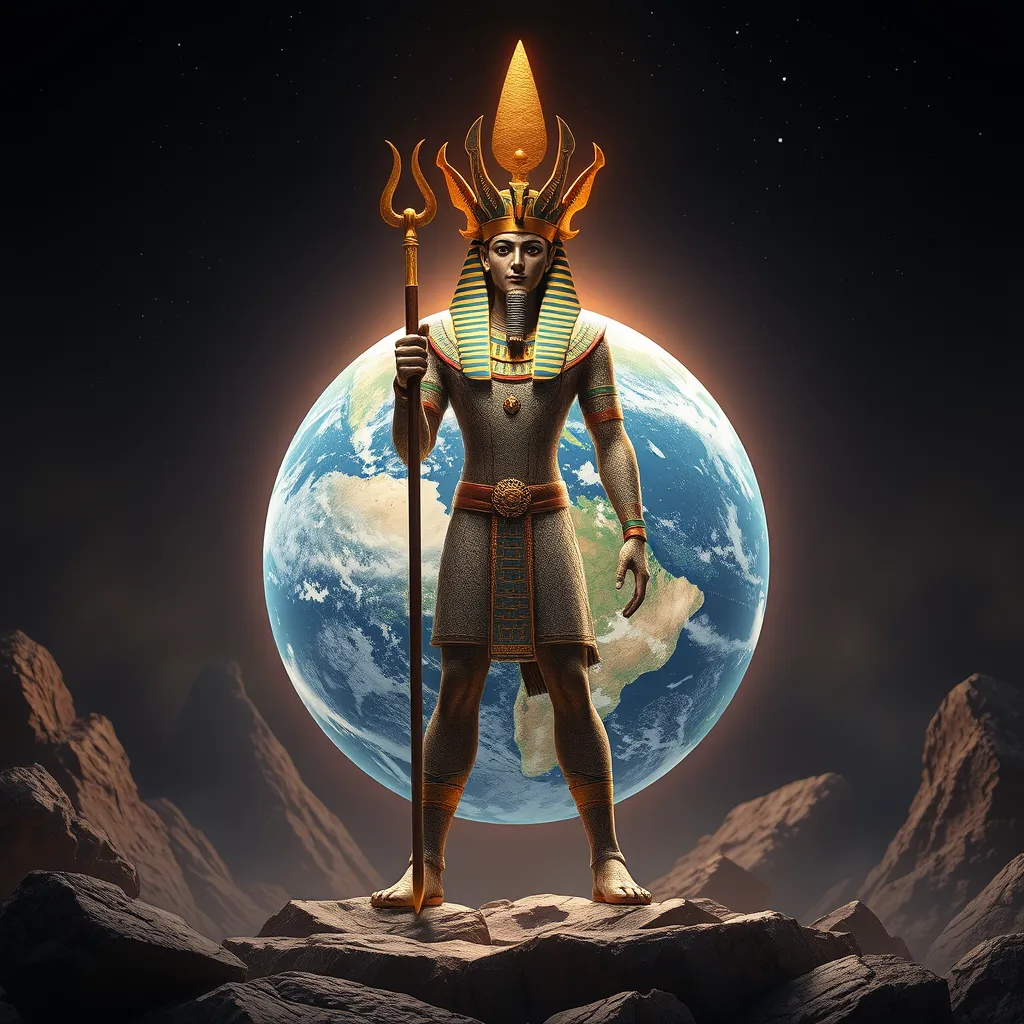The God of the Earth: Geb’s Role in Creating the World and Providing for Mankind
I. Introduction
In the rich tapestry of Egyptian mythology, Geb stands out as a pivotal figure—the god of the Earth. His significance extends beyond mere geography; he embodies the very essence of life, fertility, and sustenance. As the Earth god, Geb is vital to understanding the ancient Egyptians’ view of the world and their relationship with nature. This article aims to explore Geb’s origins, his role in creation, symbolism, and his lasting impact on humanity and culture.
II. Geb’s Origins and Family
Geb is a central figure in the Egyptian creation myth, part of the Ennead—the nine deities who played a key role in the formation of existence. His lineage is rich and complex:
- Birth and lineage in the Ennead: Geb is the son of the air god Shu and the moisture goddess Tefnut, making him a significant member of the divine family.
- Relationship with Nut (Sky goddess): Geb is the brother and husband of Nut, who represents the sky. Their union symbolizes the interconnectedness of earth and sky, a fundamental aspect of Egyptian cosmogony.
- Connection with other deities: Geb is also the father of Osiris, Isis, Seth, and Nephthys, further entrenching his importance in the pantheon of Egyptian gods.
III. Geb’s Role in Creation
Geb’s involvement in the creation myth is profound. According to ancient Egyptian belief, the world was formed through the separation of Geb and Nut:
- The creation myth involving Geb and Nut: Initially, Geb and Nut were locked in an embrace, their union representing the potential for life. However, they were separated by their father, Shu, allowing space for creation to unfold.
- Separation of Earth and Sky: This act of separation created the physical world. Geb became the solid ground, while Nut became the celestial dome, symbolizing the duality of existence.
- Geb’s influence in shaping the physical world: As the Earth, Geb is often believed to be the source of all terrestrial life, giving rise to plants, animals, and the very soil that sustains human life.
IV. Symbolism and Attributes of Geb
In Egyptian culture, Geb embodies various symbols and attributes:
- Symbolism of the earth in Egyptian culture: He represents fertility, stability, and sustenance, crucial for agricultural societies reliant on the land.
- Representations of Geb in art and literature: Geb is often depicted as a man lying on the ground with green vegetation sprouting from his body, symbolizing his role as a giver of life.
- Attributes associated with Geb: He is linked to fertility, vegetation, and stability, making him a critical deity in the agricultural practices of ancient Egypt.
V. Geb as Provider for Mankind
Geb’s nurturing aspect is most evident in his role as a provider for humanity:
- Role in agriculture and sustenance: Geb is revered as the god of agriculture, and the fertility of the earth is attributed to him. Without his blessings, crops would fail, and famine could ensue.
- Influence on fertility and the growth of crops: Farmers prayed to Geb for bountiful harvests, believing his favor would ensure the earth produced abundantly.
- Connection to the Nile and its importance for civilization: The annual flooding of the Nile, which enriched the soil, was seen as a blessing from Geb, vital for sustaining ancient Egyptian civilization.
VI. Geb in Religious Practices
Geb’s significance extended into the realm of worship and ritual:
- Worship and rituals dedicated to Geb: Various ceremonies were held to honor Geb, particularly during agricultural festivals when crops were sown and harvested.
- Temples and sacred sites associated with Geb: While Geb did not have a singular temple, he was often honored in the temples dedicated to other deities like Osiris and Isis.
- Role in funerary practices and the afterlife: Geb was seen as a protector of the deceased, providing a stable foundation for their journey in the afterlife.
VII. Myths and Legends Involving Geb
Numerous myths feature Geb and highlight his interactions with other gods:
- Notable myths featuring Geb: One famous myth involves Geb’s conflict with his brother Seth, emphasizing themes of order versus chaos.
- Influence of Geb’s stories on ancient Egyptian culture: His narratives shaped the understanding of nature, agriculture, and the cosmos in ancient Egyptian society.
- Lessons and morals derived from Geb’s myths: Geb’s stories often conveyed messages about balance, the importance of family, and the interconnectedness of life.
VIII. Conclusion
In summary, Geb is a vital figure in Egyptian mythology, symbolizing the earth and its life-giving properties. His legacy is evident not only in ancient texts and practices but also in the modern understanding of earth deities and their significance in spirituality and ecology. The enduring relevance of Geb serves as a reminder of humanity’s deep connection to nature and the importance of respecting and nurturing the earth that sustains us.




